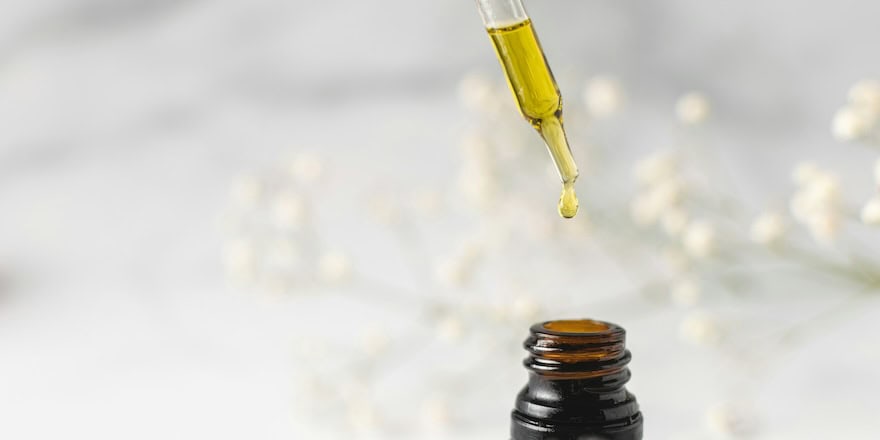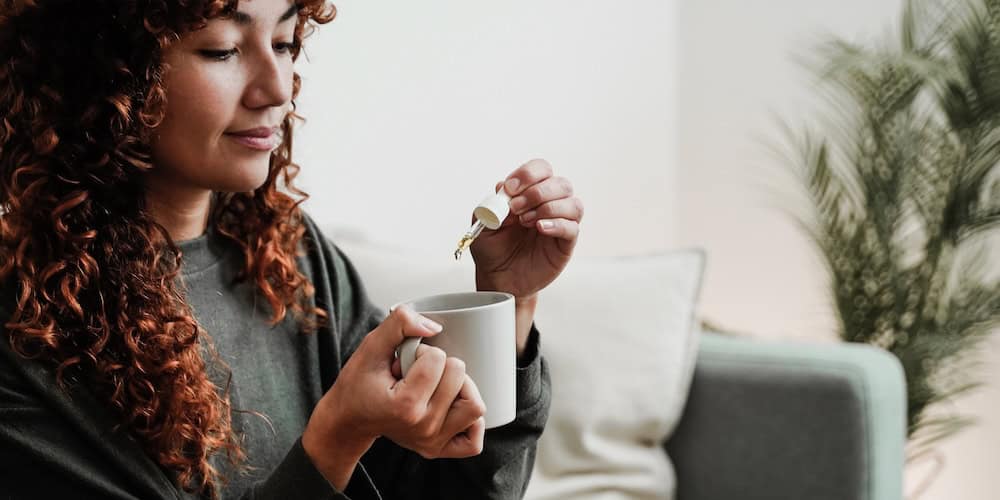Cannabidiol, more commonly called CBD, is a natural compound found in the hemp or cannabis plant. Like THC (tetrahydrocannabinol), the famous molecule responsible for the psychoactive and euphoric effects of cannabis consumption.
Even though it may suffer from cannabis’s bad reputation, CBD is nevertheless not considered a psychotropic or a narcotic. You can find it for sale online or in specialized shops, in bulk, as oil, capsules, or even infusions.
It is often recommended for its relaxing effects as well as for relieving pain. But is it really effective for combating stress and transient anxiety? I break down what science says on the subject.
📚 Also read | Our selection and analysis of the best CBD oils on the market
How can the relaxing effects of CBD be explained?
Neurotransmitters involved in mood regulation
The mechanisms of anxiety are often linked to a dysfunction of the limbic system, that is, the amygdala, the hippocampus, and the hypothalamus.
As well as an imbalance of neurotransmitters that play a major role in mood regulation.
The main molecules involved are serotonin (the happiness hormone), as well as GABA and norepinephrine.
CBD’s action on these neurotransmitters
Although the mechanisms of action of CBD are not fully understood, the plant would partly owe its relaxing effects to its ability to modulate these same neurotransmitters.
It would act notably on two levels.
According to these studies, CBD would have a agonist action at 5-HT1A serotonin receptors, meaning that it would mimic the natural action of molecules in our body.
Among other things, it would promote a greater release of the happiness hormone, which is directly involved in well-being and mood regulation.
CBD would also improve the GABAergic system, which would reduce neuronal excitability related to stress and anxiety.

A significant reduction in anxiety
Effect on generalized social anxiety disorder
There are many promising studies showing the positive effects of CBD on temporary anxiety as well as in patients with clinical anxiety.
This study in a double-blind trial revealed that 10 men with generalized social anxiety disorder (SAD) who consumed a 400 mg oral dose of CBD showed a significant reduction in anxiety compared to placebo.
Neuroimaging results also suggested that CBD intake may have affected the modulation of limbic and paralimbic brain areas.
Compared with anxiolytic medications
This other study compared the effect of CBD (300 mg) to that of anxiolytic medications such as diazepam and ipsapirone during a public speaking test. CBD showed a significant reduction in anxiety after the test.
Effects not proportional to the ingested dose
One fact that seems interesting to me: a study showed that the relaxing effect is not proportional to the dose of CBD ingested.
A 300 mg dose of CBD appears to be the most effective at reducing anxiety in healthy volunteers, compared with 100 mg and 900 mg doses. At high doses, CBD could therefore be counterproductive.
Some precautions for use
It is recommended to start with a low dose, and adjust gradually according to your needs.
CBD is not a pharmaceutical treatment and is not intended to replace such treatments. Before using it, I strongly recommend that you discuss it with a healthcare professional.
Indeed, CBD could have drug interactions with certain treatments with a narrow therapeutic index.
Sources and scientific studies
- Russo EB et al., Agonistic properties of cannabidiol at 5-HT1a receptors, 2005
- Crippa JA et al., Neural basis of anxiolytic effects of cannabidiol (CBD) in generalized social anxiety disorder: a preliminary report, 2011
- Effects of ipsapirone and cannabidiol on human experimental anxiety, A. W. Zuardi et al., 1993
- Inverted U-Shaped Dose-Response Curve of the Anxiolytic Effect of Cannabidiol during Public Speaking in Real Life, Zuardi et al., 2017



